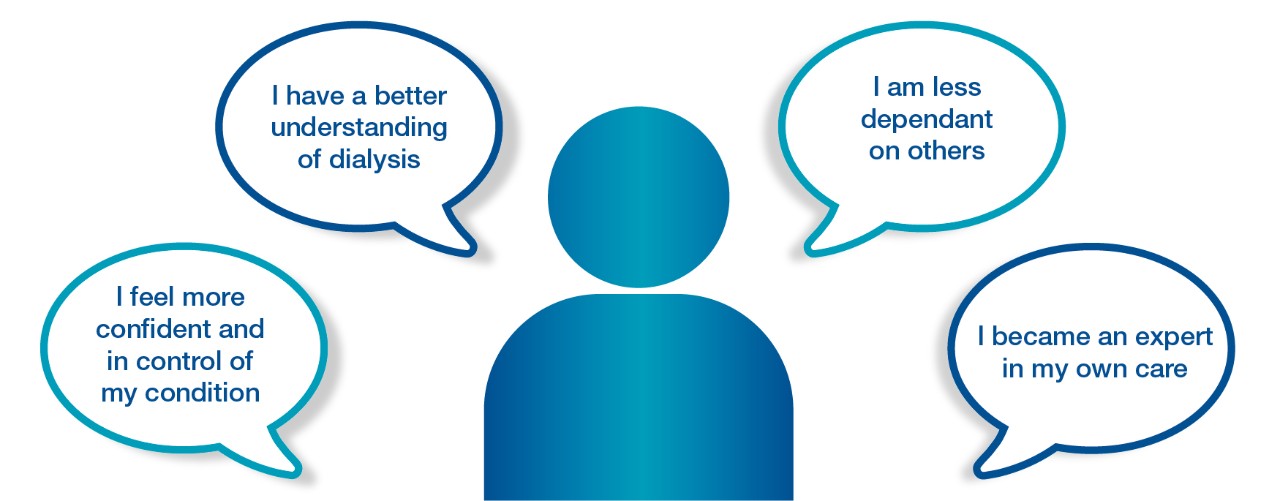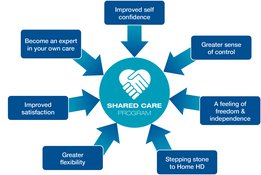Shared care
What aspects of my care can I take part in?
You can decide which skills you want to learn. Remember you choose how involved you want to become and you set your own pace, so at the beginning you may decide just to learn one or two basic skills and then at a later stage move on to learning more advanced skills such as inserting your dialysis needles.
Skills can vary depending on your treatment and where you’d like to start but can include:
Your nursing team would teach you to do the tasks you choose and check that you were competent and confident before you did anything on your own. Even then they would always be around for support and guidance, or to carry out the task if you didn’t want to or were unable to complete it.
Shared Care is not compulsory, and you can opt in and out whenever you see fit, there would never be any pressure put on you to complete all tasks or in a certain amount of time. Patient choice is central to Shared Care, you are completely in control.
How can Shared Care help me?
It can help you develop a more positive outlook and feel a greater sense of control if you understand and are more involved in your treatment. Patients who have been involved in shared haemodialysis care tell us:
Patients who share in their care comment that they feel a sense of achievement and community whilst in a Shared Care setting. It is a chance to form friendships with others who are on this journey, and in time you could help others to become involved in their treatments.
Some people participating in Shared Care become completely independent and choose to do their dialysis at home. This is not the aim of Shared Care however.
Frequently Asked Questions
How do I become involved in Shared Care?
What are the benefits of participating in Shared Care?
- It will help you to have a better understanding of dialysis and to feel more confident and in control of your condition.
- You wil feel more independant as you slowly become an expert in your own care.
- For certain tasks, you may feel more comfortable if performing these yourself, no one knows your body better than you.
- Shared Care can be a stepping stone to Home Haemodialysis if this is something you wish to do but perhaps lack confidence to begin with. Home Dialysis allows you to fit your treatment around your work and social life.
What you need to succeed with Shared Care?
- A willingness to learn
- Patience with yourself; everyone is different and will pick up tasks at a different pace. Don't feel frustrated if others are learning quicker than you, as long as you are going comfortably at your own pace.
You can also click here to visit the Shared Haemodialysis Care website for more information and access to resources.




